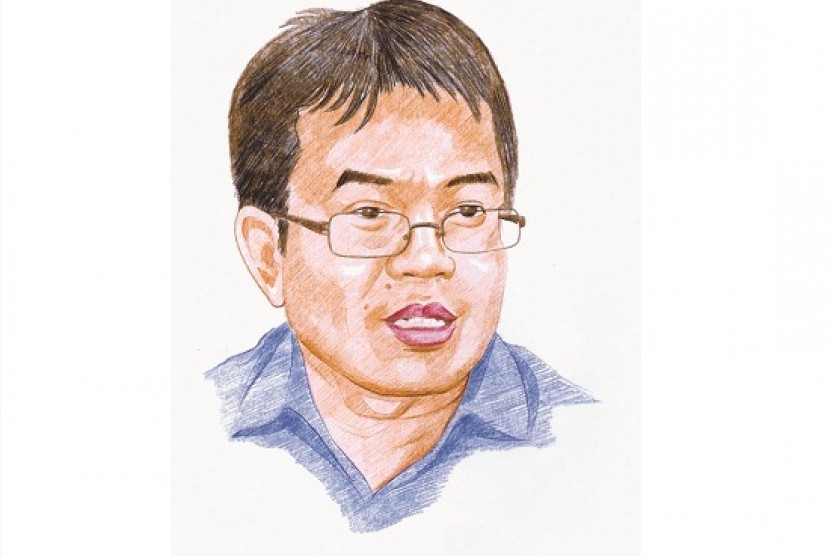By Yudi Latif
Indonesia is a weak country within a strong nation. Behind Indonesia's great problem, not yet finding the right country's leadership to its nation needs, Indonesia still stands as a country because of its strong national solidarity.
Indonesia's strength as a nation lays on its capability to preserve its archipelago base as a cross culture pollination spot that presents shade of unity in diversity. As the largest archipelago country in the world stretches strategically between two oceans and continents, Indonesia has become pollen garden of the world civilization.
According to Denys Lombard, "Clearly there is no place in the world except maybe Central Asia - as such Indonesia, which becomes the central place for all worlds’ major cultures united." He painted there was "social-culture nebula" which strongly influenced Indonesia's civilization (specifically Java): India, Asian network (Islam and China) and westernization stream.
The fact that Indonesia as the civilization intersection, according to Lombard, has made it enable to evolve without any disturbance or influence from outside. But, this situation must not be taken as a loss. If taken care of well, while keeping “homeland” positive characters, foreign influence in its history evolution could carry many advantages, if not requirements to be a great civilization.
Evidently, although there are diversity and changes as impacts of many cultures and great civilization within a long term, Indonesia is still able to maintain its profound ‘’originality”. It shows that almost all languages spoken in this region nowadays classified as part of Austronesia language family, which is known as Malay-Polynesia language.
Local language structures never changed even new words borrowed from Indo-Europe, Dravidian, Semite, and Chinese are uncountable. Besides language entity, association of ethnic groups was build through cross-island commercial network where ocean has become connecting factor, not divider.
Cross-island religion network also become unity basis, especially Islam expansion vast network in Indonesia, which shows da’wah (preaching) interconnection process and the relationship amongst teachers and students. These have connected religious local community into one entity, exceeding cross ethnicity and islands.
Ethnic groups’ bond also built by crosses ethnic authorities, since Hindi-Buddhist kingdoms era to Islamic kingdoms’- although those kingdoms territories were never been the same as post colonialism Indonesian Republic territory.
As archipelago society living in strategic cross-section, whether the people or the ruler in Indonesia are accustomed to absorb new elements and blended them with the old ones, which made this archipelago as a pollination spot. With such synthetically readiness and creativity, at least since the era of Majapahit Kingdom, has rose so-called “civil-religion” that brought peaceful co-existence amongst religious people.
Civil religion doctrine within the old nusantara (archipelago) was formulized by Mpu Tantular in book of Sutasoma, “Bhineka Tunggal Ika tan Hana Dharmma Mangrwa”: Unity in Diversity, Only One Absolute Truth. Nobody knows how long this civilization legacy as the anchor of nation’s strength can hold nowadays’ country weak leadership.
From Lake Sentani in Papua to Lake Toba in North Sumatra, the purity of wisdom water that keeping unity in diversity could be polluted by political waste and threaten cultural ecosystem immunity. It is worrying, because Indonesia is the political interconnector of cultural diversity.
If politics as the bond knot brittled, nusantara’s cultural legacy cannot be united into one strong broom stick, and rather be some scattered pieces of stick, easily to break. It is time for our leaders to repent before our culture endurance fall apart.
(Indira Amaranti)



